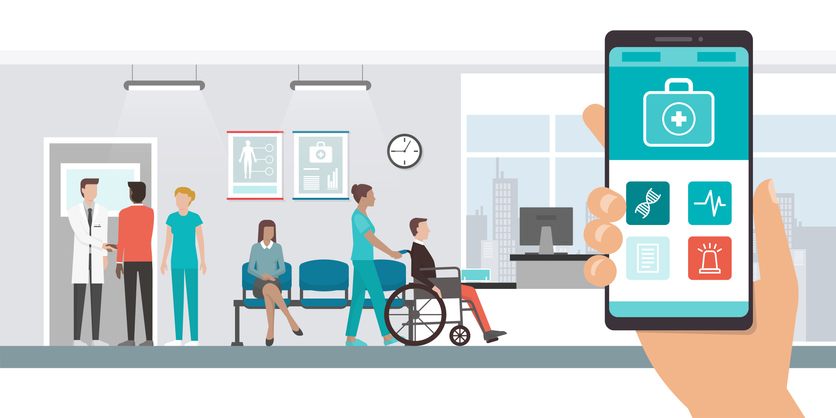
What do you picture when you read the word “psychotherapy”? Is it the couch, the notebook, the cross-legged therapist, the cigar? That archetype of therapy being a face-to-face interaction in a quiet, calm room is firmly embedded in our collective psyche. So, when technologists speak of AI-powered psychotherapy, the concept of replacing Freud, Dr. Melfi or Frasier Crane with a robot seems jarring and wrong. While the robo-Freud scenario makes for a cute graphic, this strawman gets in the way of seeing what’s truly possible when the therapeutic process meets modern technology.
Now more than ever, mental healthcare is truly in crisis. The Substance Abuse and Mental Health Services Administration (SAMHSA) estimates that by 2025, the United States will have a shortage of nearly 100,000 psychologists, psychiatrists and mental health counselors. Meanwhile, there is an immediate need to address the widespread emotional wreckage created by the Covid-19 pandemic. A December 2021 New York Times article reported that 9 out of 10 therapists say the number of clients seeking care is on the rise, and most are experiencing a significant surge in calls for appointments, longer waiting lists and difficulty meeting patient demand.

With the Rise of AI, What IP Disputes in Healthcare Are Likely to Emerge?
Munck Wilson Mandala Partner Greg Howison shared his perspective on some of the legal ramifications around AI, IP, connected devices and the data they generate, in response to emailed questions.
Pragmatists understand that, given the sheer volume, there is no way to meet the need for mental healthcare services by relying solely on human practitioners. Some fear AI will take over not just our jobs, but our ability to connect with humans. But those who sit at the intersection of health and technology see AI as one of the best tools we have to help accelerate innovation and augment human therapists’ work by improving the standard of services that can be delivered without them.
Moving past myths
Let’s be clear: AI is not going to replace human therapists. There is no substitute for human connection. The answer to reducing the burden of mental illness in the population is not to build digital therapists, but to empower people with better self-directed tools that complement the work of human therapists.
How could this possibly work? The answer is in the approach. Back in the 1970’s and 80’s, the previously evidence-free field of psychotherapy was transformed by cognitive behavior therapy (CBT). Albert Ellis and Aaron Beck took psychotherapy out of the proverbial dark ages of dream analysis and made it practical and problem-focused, based on the here and now, and, for the first time, evidence based. David Burns empowered people with these tools by literally putting them in people’s hands when he published Feeling Good: The New Mood Therapy. CBT transformed psychotherapy from a cottage industry to an approach suited to the industrial revolution. As a result, most digital mental health solutions available today are based on CBT precisely because it translates so well to a digital setting.
CBT is fundamentally a self-directed approach that is facilitated by therapists. In a traditional treatment setting, the CBT therapist helps the client to gather and analyze information that enables them to challenge their own perspective and reach more realistic conclusions about themselves, the world around them, and the future. CBT and its derivatives involve a surprising amount of repetitive task completion on the part of the client. What’s more, data shows that the more a client truly engages in these tasks between sessions – symptom self-monitoring, challenging negative thought patterns, and re-wiring unhelpful behavior within the context of one’s everyday life – the better their outcomes will be. But your therapist isn’t available when you’re not in session. AI can better support that engagement — it won’t get bored by repetitive tasks, can systematically prompt, guide, and monitor you, and it’ll happily respond at 4 a.m. without needing to bill your insurer extra.
Expanding access and leapfrogging innovation
As fields, psychology and psychiatry tend to develop treatment approaches with a one-size-fits-all perspective that is adapted on the fly by clinicians through their highly attuned, highly trained intuitions. But without systematic recording of what clinicians are doing or how successful their approaches are, we are left unable to tease apart the active ingredients of treatment, or to establish what works best for whom, under what circumstances.
AI affords us the opportunity to learn dynamically. Consider what we could do if we automatically recorded all modifications that therapists make on the fly, with which patients, and their relative success. One oft-used comparison is breast cancer. Today, we understand that there are crucial differences between types of breast cancers and that understanding has informed standards of care such that the 10-year survival rate has doubled from 40% to 78%, in just 40 years. We urgently need to get to the same place with psychotherapy—we are already dealing with the fallout from a global pandemic and there will be harsh, unequal consequences for younger generations if we do not radically rethink our approach.
It’s time to reject reliance on the availability of human therapists and explore digitally driven, personalized care, so that each person receives exactly what they need when they need it, preserving our precious pool of trained human therapists for those that need them most.
Imagine a future in which anyone, at any time of day, could access readily available therapy for help navigating a challenging situation, moment or feeling. The ability to access this type of in-the-moment intervention is unprecedented within a mental health context. Yes, we will need to guard against bias, and yes, AI is a tool that can be well designed or folly, but we need to move on from the idea that AI-powered services simply replicate what humans do. What AI can deliver is quite different—and therein lies the potential.
Photo: metamorworks, Getty Images
Alison Darcy, PhD is a clinical research psychologist and the Founder and President of Woebot Health, a digital therapeutics company dedicated to making mental health radically accessible.














